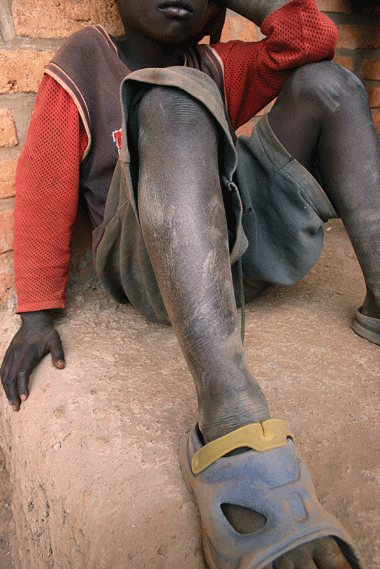 That's just not right!” he exclaimed. “How could people do that? I can't believe people would do those kinds of things.”
That's just not right!” he exclaimed. “How could people do that? I can't believe people would do those kinds of things.”
Nine-year-old Nathan was experiencing what all of us felt—a white-hot, righteous anger on behalf of those who have experienced injustice. You see, his world consists of a large, loving family, including parents who serve the Lord in full-time ministry. He attends a Christian school and has a teacher who begins each class with prayer. For him, hurting another person is unimaginable.
Nathan is my son and he is learning about modern-day slavery—not just far away in developing countries, but right here in Canada, even in his own city. It's difficult for him to learn that there are people who do bad things to hurt others.
Speaking to your children about crime and other serious issues is not easy. How much you tell them depends on factors such as their age, maturity and intelligence. For instance, preschoolers cannot tell the difference between reality and fantasy. A monster in a book or a children's movie can scare them. Our six-year-old, Evan, was extremely afraid of the A&W Root Bear he saw when we were on holidays one year, and for a long time we couldn't go any place where there were people dressed in animal costumes. At this age children cannot fathom larger issues.
School-age children, from six to 12, are the most sensitive to what they see on the news and read in the newspaper. Yet they often lack the ability to put it into perspective. You might tell them about a young boy who is taken from his family and kept as a slave to make rugs in a big city in India. This would disturb them and the first thing they'll want to know is, “Why?” You must be armed with the information to explain as much as you can, even when the explanation is not easy.
Help children overcome their sense of powerlessness in the face of difficult issues:
• Set up a prayer guide and pray together daily for people affected by slavery
• Help your child write a letter to your local MP, asking them to do something about the issue here in Canada
• Think up creative ways to raise money to send to an organization that helps fight human trafficking
• For older children, blogging can help them talk about the issues
It's important to talk to your children at this age about serious issues. Their maturity and ability to understand must guide you, but this is the age when establishing an open style of communication with them is very crucial. If you're not talking to your kids, someone else will be. You'd be surprised at what they are picking up from their teachers, their schoolmates, television, newspapers and the Internet.
They need to have the right information—not necessarily all the information, but what is appropriate for their age. Particularly between eight and 12, children want to talk and learn more about tough issues. The more we share with them honestly, the more likely they are to turn to us as they grow into their teens. Children 11 and up have a better understanding. We must ensure they are given correct information because what they hear from their peers is often distorted.
Nathan is interested in many things. We've been talking to him about human trafficking and he's been listening. So far, we're giving him the basics and not too many of the details. At nine, he's not ready to hear about some of the atrocities that occur all too frequently. But one day soon he'll ask, and I hope we'll be ready for that conversation.
In Proverbs 22:6 we read, “Start children off on the way they should go, and even when they are old they will not turn from it.” It is our responsibility to arm our children with the truth and prepare them for the world. Introducing some of these topics can bring families together as they pray for those who are suffering.
 Major Kathie Chiu is the Corps Officer and Executive Director of The Caring Place Ministries, Mountain View Community Church, Maple Ridge, B.C.
Major Kathie Chiu is the Corps Officer and Executive Director of The Caring Place Ministries, Mountain View Community Church, Maple Ridge, B.C.









Leave a Comment